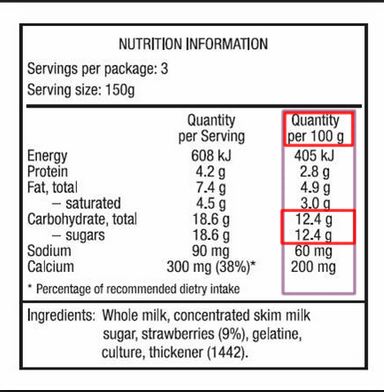No matter where you’re at in your health journey, the chances are you’ve already tripped up on nutrition. It seems like every day brings with it a new “breakthrough” diet promising the same miracle weight loss in a new record time. Most of these diets, though, do more harm than good. But with seemingly everyone telling you something different how are you to tell the difference? Most of us end up having to tighten our belts, forge on, and learn our lessons the hard way.
That’s what I did. When I started trying to lose weight, I didn’t have a clue what I was doing. And though I read a lot and tried to learn everything I could, I still made quite a few mistakes. But I learned from them and kept on and now get to tell you there is an end to your journey. And to make getting there easier, here’s what I learned are the biggest pitfalls to avoid.
1 / Buying “Fat-Free” Food
No surprise, marketers are smart. They know what it takes to get people to buy without thinking and slapping “fat-free” on a package usually does the trick. Many people automatically assume when they see labels like “fat-free”, “sugar-free”, or “light” that the food is good for you. Unfortunately, most of the time this isn’t true.
There’s a simple reason people keep eating fatty foods: they taste good. And when you remove that fat, sugar, or whatever else, you remove the very taste that keeps people buying. To compensate, food companies have to add something else back in to improve the taste. These additives are generally highly processed, completely devoid of nutrients, and totally bad for your weight loss goals.
Here’s a simple rule of thumb to help you avoid this trap: the closer a food is to nature, the better.
2 / Too Little Food
We’re all told when we start out that weight loss is simple. Calories In – Calories Out = Weight Loss. Reduce the amount you’re eating and the fat’s supposed to roll straight off your bones, right?
Wrong! While this works in moderation, if you eat too little, the pendulum actually swings the other way around. Your body is an incredible machine and will eventually adapt to whatever it encounters. When you don’t eat enough, it compensates by slowing down your metabolism. And if your calorie intake is too low, your body will begin to break down muscle to use as fuel instead. Not only does this stop your weight loss in its tracks, but you lose any other gains you might have made.
3 / EXTREMES!!!
If you’ve ever talked to anyone about diets, chances are you’ve come across someone who treats it like the latest extreme sport. While taking every supplement known to man or inviting tapeworms into your gut may work for some people, most of us are more comfortable – and much healthier – on an easy middle ground.
In general, the extremes creep in when you start to rush your program. The key to winning in the long run is to take it easy, keep at it, and slowly adjust your program until you find the right balance for you.
4 / Fad Diets
The problem with extremes is also reflected in our fondness for fad diets. Most of the time, these diets hook you by promising massive gains in a short amount of time. And they usually deliver – but only across a short period of time. Long-term, these diets prove destructive and the weight loss fleeting.
Ultimately, the only diet that works is a healthy, balanced lifestyle change. Before you start any new diet, ask yourself honestly if you’ll still be living by it five years from now. If you can’t answer yes, don’t even bother starting.
5 / Cheat Days
We’ve all done it. Personally, I call them mental health days. But while a cheat meal every now and then is fine – and can even be beneficial – if every weekend you vacation from work and from the diet, you’re going to have a problem.
By no means stop treating yourself. Depending on your goals and your progress, a cheat meal or two is generally okay. But don’t let a meal here and there turn into a habit. Cheat meals turn into a slippery slope real quick and before you know it, you’ve lost all the gains you’d made.
6 / Ignoring Your Body
Believe it or not, but your body actually has a pretty good idea what’s good for it. And if you listen, it’ll tell you! Problems like obesity don’t generally happen because you’re eating a terrible diet, but because you don’t listen when your body says “I’m good”. The results can be equally bad if you don’t listen to it when it says “I’m hungry”.
Try tuning into the signals your body is giving you. If you rely on it, and not the clock, to tell you when to eat, you might experience some surprising results.
7 / Don’t Stop Living
We try to be healthy to improve our quality of life, but often we let health dictate our life instead. We start obsessing and stop living. If your diet’s making you miserable, stop. Take a deep breath, put away the scale, and have that piece of chocolate. Smile. Relax. Live a little bit.
Trust me, both you and your body will thank yourself for it.

